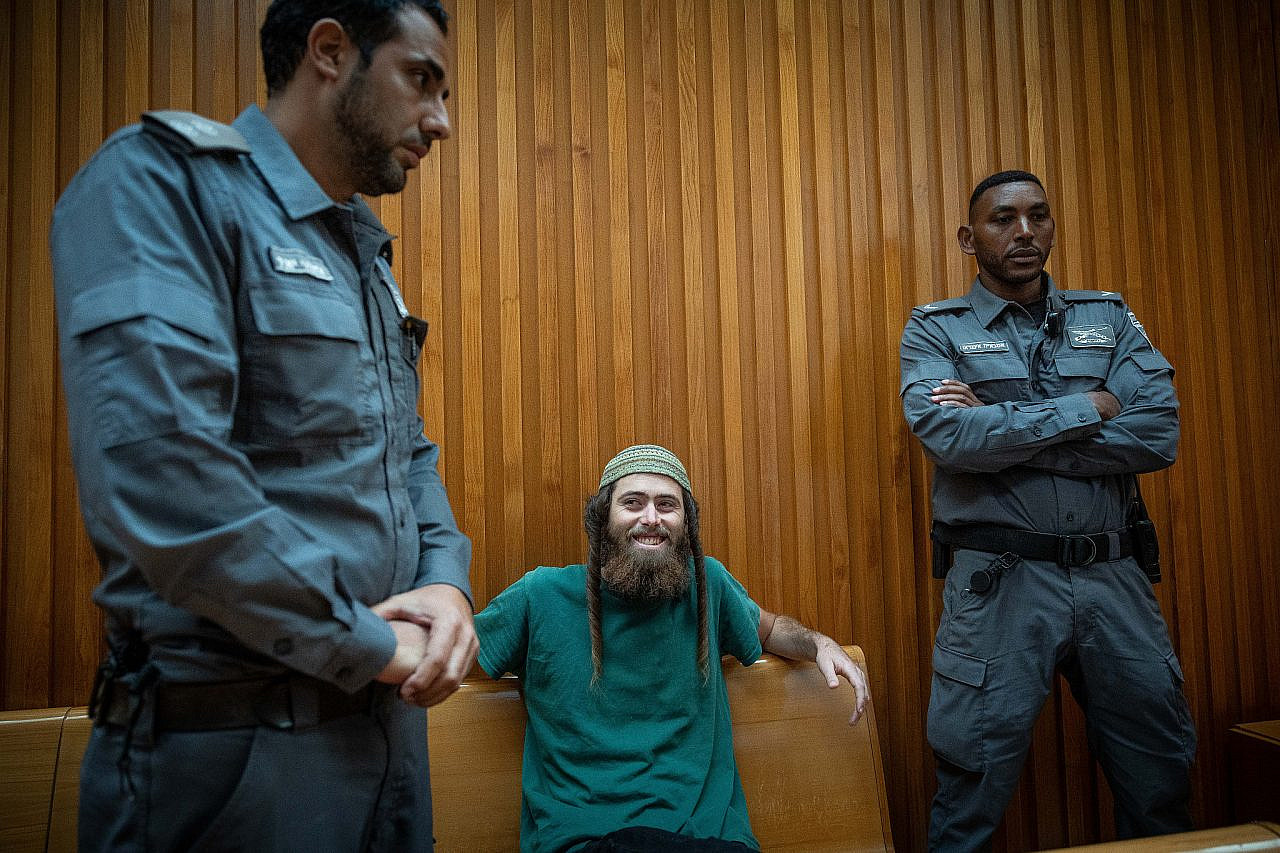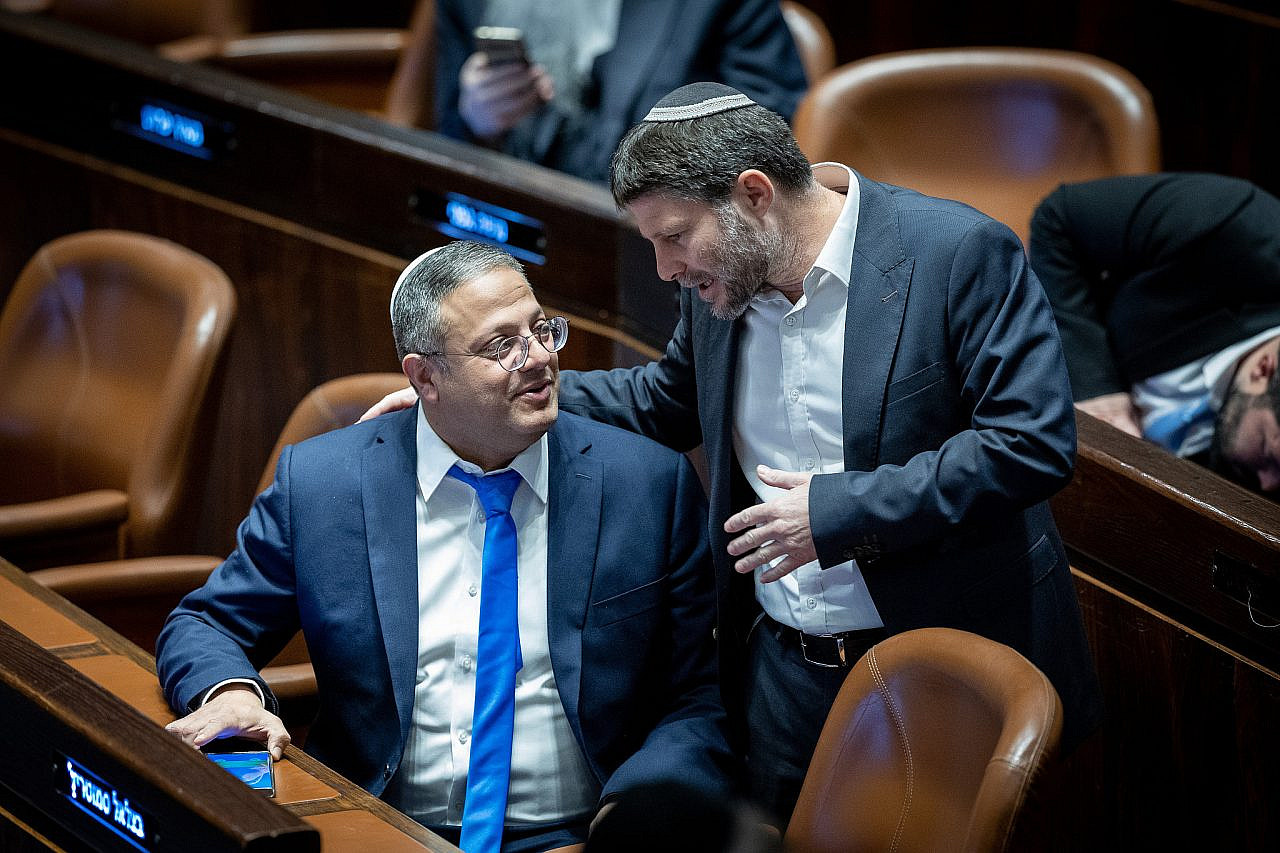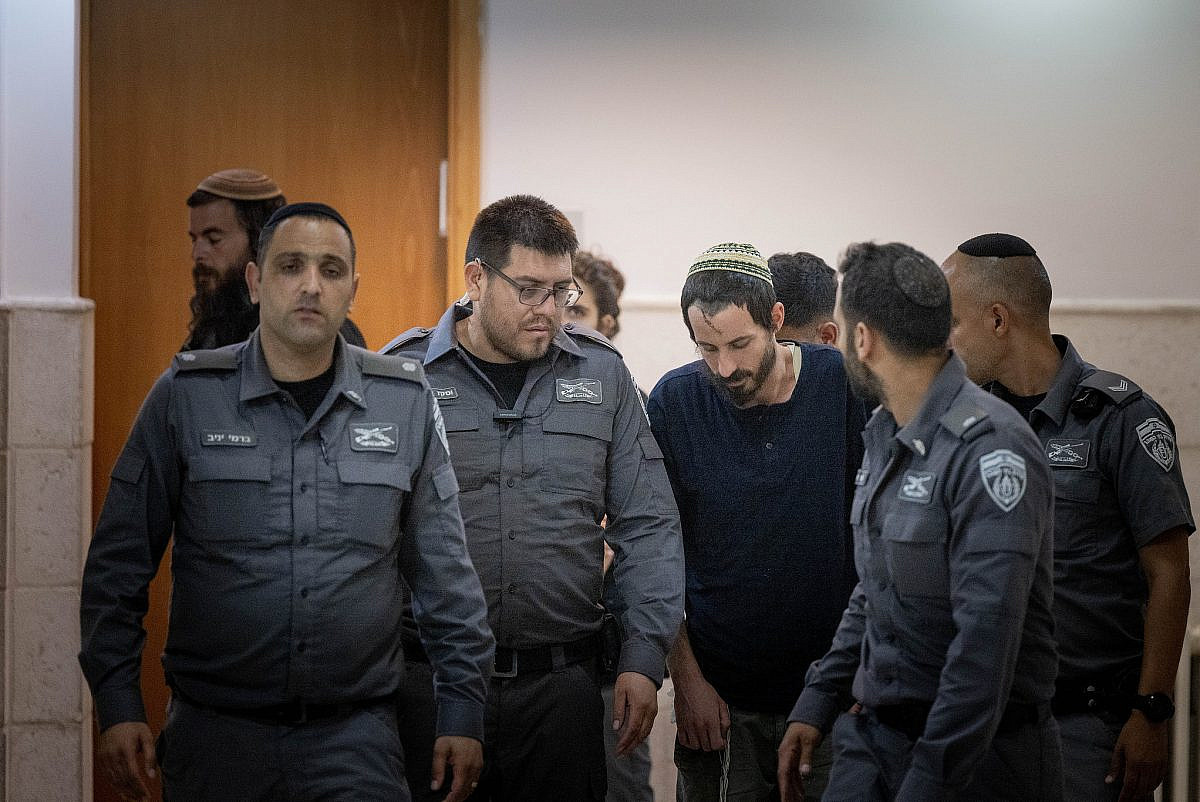Not long after a Jewish settler allegedly shot and killed a 19-year-old Palestinian man, Qosai Jammal Mi’tan, in the West Bank village of Burqa earlier this month, a prominent right-wing journalist from the Kan public broadcaster, Akiva Novick, came to the main suspect’s defense. “I don’t know what exactly happened near Oz Zion on Shabbat, but I personally know the Jewish man who was seriously wounded in the incident,” Novick tweeted about Yehiel Indore. “He is very far from looking for confrontations and friction. I would not rush to draw conclusions here.” The same narrative could be found throughout the right-wing press.
Although we don’t know exactly how and why Novick is seemingly so well-acquainted with Indore, it turns out that they are both the sons of members of the Jewish Underground, an infamous Jewish terrorist group involved in several notorious attacks on and plots against Palestinians, including a plan to blow up the Dome of the Rock, in the 1980s. Specifically, both men’s fathers — Yossi Indore, who is now an electrician in the settlement of Ofra; and Yitzhak Novick, who continued years later to serve as a reservist in the Israeli army — were suspected of being part of a Jewish Underground cell that, in 1980, planted several bombs targeting Palestinian mayors in the West Bank.
One bomb exploded in the car of Ramallah Mayor Karim Khalaf, who lost his right foot in the attack; another was planted in Nablus Mayor Bassam Shaka’a’s car, which caused him to lose both legs; and one exploded outside the garage of Al-Bireh Mayor Ibrahim Tawil. Although Tawil was unharmed by the attack, an Israeli police bomb sapper was blinded while trying to defuse the bomb.
Whereas Yitzhak Novick was arrested in 1984 when Israel’s intelligence services rounded up the group’s members — as was Hagai Segal, who also took part in the bombings, and who is now a prominent right-wing journalist along with his son, Amit — Yossi Indore managed to evade the authorities with fellow Underground member Ira Rappaport, the former emissary of the settler organization Amana, which is run today by another former Underground member, Ze’ev Hever.
According to Yossi’s recollections in a post on the website of the Yesha Council, the settler umbrella organization, he managed to flee after he was tipped off that the Shin Bet were asking around in Ofra about where he lived. “One of the residents smuggled me to Jerusalem, and for several months I did not leave the apartment where I was hiding,” Yossi wrote. “For three years I was away from Ofra and lived in different places. I stayed many times at the family home of Rabbi Michael Hershkowitz in Jerusalem, who today is the rabbi of the settlement of Neria.”

Newspaper reports at the time noted that Yossi Indore was a wanted terrorist and confirmed that he received help from settlers and rabbis, who were never accused of or charged with aiding and abetting a terrorist. Eventually, Indore got married, and the majority of the terrorists from the Jewish Underground — after serving relatively short prison sentences — were pardoned by Chaim Herzog, the father of Israel’s current president, and released following public demand. The police and the Shin Bet lost interest in Yossi Indore. He moved to Ofra, where his son Yehiel was born.
It is possible that had the state carried out its duty and convicted Yossi Indore for terrorism, as well as those who aided him, we would be living in a different reality today. Had the state made sure that these terrorists did not get positions as prominent rabbis and journalists, perhaps Yehiel Indore would have seen there is a price to be paid for Jewish terrorism.
The political arm of the settlement movement is working hard these days to legitimize the attack in Burqa, organizing demonstrations against the arrest. Otzma Yehudit MK Limor Son Har-Melech — whose former spokesperson, Elisha Yered, is also a suspect in Mi’tan’s killing — is present at every court hearing on the case. Yered once said in an interview that it is legitimate to kill Arab babies, since this is what God wants; meanwhile, an old video resurfaced earlier this month of Son Har-Melech praising her toddler for saying that he wants to kill Arabs when he grows up.
Religious Zionist Party MK Orit Strock, herself the mother of convicted terrorist Zvi Strock, as well as her fellow RZP MK and former hilltop youth settler Zvi Sukkot, visited Indore at the hospital after he was wounded during the attack. National Security Minister Itamar Ben Gvir — himself convicted of supporting terrorism, and who until recently hung a photo of the terrorist Baruch Goldstein in his living room — has declared himself concerned about Indore’s condition while in custody.
Finance Minister Bezalel Smotrich, a settler who called for the erasure of the Palestinian town of Huwara in the wake of February’s settler pogrom there, tweeted a photo last weekend of himself buying grapes from Zvi Strock’s vineyard. Strock lives in the illegal Esh Kodesh outpost, which was established on Palestinian land and has become a home base for settler terrorist attacks. Strock was convicted in 2011 of stripping and beating a Palestinian boy, then leaving him bleeding and bound in a field. Smotrich’s tweet is, of course, not accidental; it is intended to legitimize violence and plunder.

Settler terrorism has always received support from the settler public. But contrary to the days of the Jewish Underground, today that support comes directly from the government, which includes ministers who have been convicted of supporting terror, like Itamar Ben Gvir, or suspected of planning acts of terror, like Smotrich.
Last year, the journalist Amit Segal, son of Hagai, presented a survey on Israel’s Channel 12 asking whether the previous “government of change,” which included the Islamist Ra’am party, was propped up by terror-supporters. For some reason, despite the aforementioned facts, the same question is not being asked now. Nor does it need to be: for the government and its supporters — including those in the media — there is no such thing as Jewish terrorism. For the rest of us, the answer is all too obvious.

